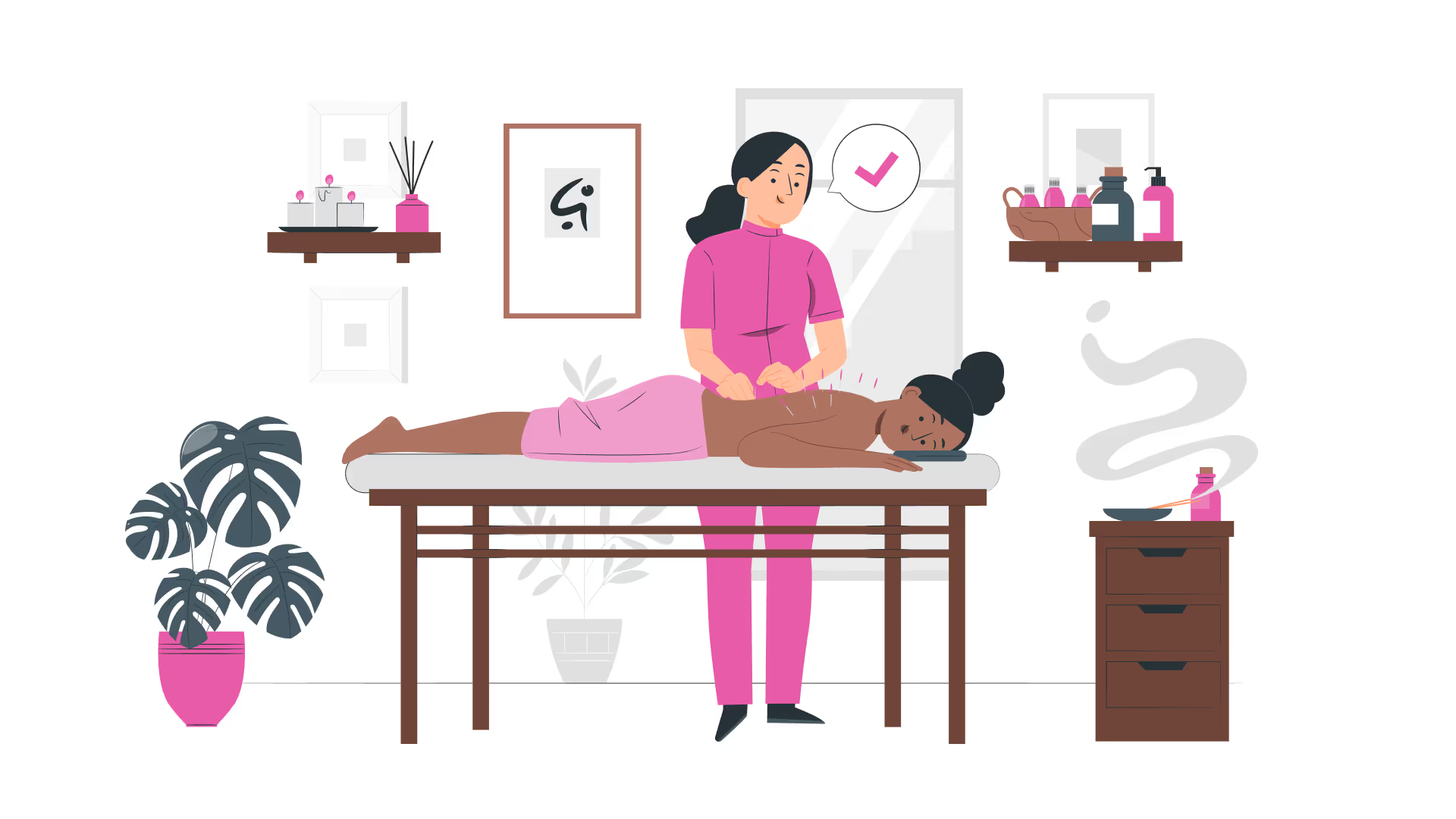TL;DR: How to Become an Aesthetic Nurse Practitioner (2025 Guide)
- Aesthetic nurse practitioners perform non-surgical cosmetic treatments like botox treatments, dermal fillers, and laser therapy in outpatient settings and medical spas.
- The educational pathways include earning a registered nurse degree, passing the NCLEX-RN exam, gaining clinical experience, completing an accredited nurse practitioner program (MSN or DNP), and securing specialized training in aesthetic procedures.
- Key skills include clinical precision in cosmetic medical procedures, aesthetic judgment, and strong patient education abilities.
- Healthcare professionals in this field typically enjoy high earning potential, regular working hours, and the option to work independently or open their own practice.
- Average salary is $142,326 in 2025, with growing demand and career opportunities in medical aesthetics practice.
In the ever-evolving healthcare landscape, aesthetic nurse practitioners have carved out a unique niche in medical aesthetics, offering specialized care aimed at enhancing the physical appearance of their patients. As the demand for cosmetic procedures and aesthetic treatments continues to grow, so does the appeal of this exciting career for registered nurses seeking professional development. These medical professionals combine clinical expertise with an eye for aesthetics, helping patients feel more confident in their appearance through non-surgical cosmetic treatments.
However, the path to becoming an aesthetic nurse practitioner in 2025 involves several critical steps, including education, licensure, hands-on experience, and continuous learning in the latest techniques. One of the most challenging aspects many nurse practitioners face is securing quality clinical placements during their training—especially in specialized fields like aesthetic medicine where preceptors are in high demand.
This updated guide will provide you with a detailed roadmap to pursuing this rewarding career in aesthetic nursing, along with insights into the scope of practice, necessary skills, and the promising future outlook for this profession in medical spas, private practice clinics, and aesthetic services.
Finding it challenging to secure clinical rotations in aesthetic medicine? Many NP students struggle to find preceptors in competitive specialties like aesthetic nursing. NPHub connects you with vetted preceptors in medical spas and aesthetic practices, handling all the logistics so you can focus on your education. Discover how NPHub can help you secure your aesthetic clinical placement →
What Does an Aesthetic Nurse Practitioner Do?
Aesthetic Nurse Practitioners specialize in non-surgical cosmetic treatments designed to enhance or restore a patient’s appearance. The procedures they perform are highly sought after by individuals looking to improve their physical features without undergoing invasive surgery. These treatments include, but are not limited to:
- Botox Injections: Administering botulinum toxin to reduce the appearance of fine lines and wrinkles by temporarily paralyzing facial muscles.
- Dermal Fillers: Injecting substances like hyaluronic acid to add volume, smooth out wrinkles, and contour facial features.
- Laser Tattoo Removal: Using laser technology to break down tattoo ink particles, allowing the body to naturally remove them over time.
- Chemical Peels: Applying chemical solutions to the skin to remove damaged outer layers, revealing smoother and more youthful skin beneath.
Aesthetic nurse practitioners work typically in outpatient settings and focus on enhancing clients' beauty and confidence.
ANPs often work in settings such as private practices, medical spas, dermatologists’ offices, and even plastic surgery centers. Their role is both technical and consultative, requiring a deep understanding of each patient’s aesthetic goals and medical history. Clear and effective communication is crucial in this profession, as it ensures that patients are fully informed about the procedures, risks, and expected outcomes.
The Pathway to Becoming an Aesthetic Nurse Practitioner
Becoming an Aesthetic Nurse Practitioner
Becoming an Aesthetic Nurse Practitioner involves several key steps, each of which is crucial to building a strong foundation in both nursing and aesthetic medicine. The growing demand for aesthetic practitioners and the rewarding nature of the profession, which helps boost patients' confidence and improve their quality of life, make it an attractive career path. Here’s a detailed breakdown of the pathway:
1. Obtain Advanced Education
To become an aesthetic nurse practitioner, obtaining advanced education is essential. It is important to obtain a Master of Science in Nursing (MSN) or Doctor of Nursing Practice (DNP) from an accredited nurse practitioner program. This formal education provides the necessary skills and experience required in the field.
2. Obtain a Registered Nursing (RN) Degree
Your journey begins with earning a Registered Nursing (RN) degree, which can be achieved through one of two educational pathways:
- Associate Degree in Nursing (ADN): A two-year program that provides foundational nursing education and clinical experience.
- Bachelor of Science in Nursing (BSN): A four-year program that offers a more comprehensive nursing education, including leadership and research opportunities.
While an ADN allows you to become a registered nurse, many employers prefer or require a BSN due to the broader scope of training and opportunities for advancement.
3. Pass the NCLEX-RN Exam
After completing your nursing degree, you must pass the National Council Licensure Examination for Registered Nurses (NCLEX-RN). This exam tests your knowledge and skills in nursing to ensure you are prepared to provide safe and effective care. Passing this exam grants you the license to practice as a registered nurse.
4. Gain Clinical Experience
Before specializing in aesthetics, it’s essential to gain practical experience as an RN. Working in areas such as dermatology, plastic surgery, or critical care can provide valuable insights and skills that will be beneficial in your future role as an ANP. Most aesthetic nurse practitioners have several years of nursing experience before they pursue this specialization.
5. Pursue a Master of Science in Nursing (MSN)
To advance your career and become a Nurse Practitioner (NP), you will need to earn a Master of Science in Nursing (MSN) or higher. An MSN program typically takes 2-3 years to complete and includes both coursework and clinical training in advanced nursing practices. Some programs offer specific tracks or concentrations in aesthetic nursing, though you may also choose a more generalized NP program and pursue additional aesthetic training afterward.
6. Obtain Nurse Practitioner Licensure
After completing your MSN, you must obtain NP licensure in your state. This typically involves passing a national certification exam through organizations like the American Nurses Credentialing Center (ANCC) or the American Association of Nurse Practitioners (AANP). Licensure requirements can vary by state, so it’s essential to understand the specific regulations in the state where you plan to practice.
7. Acquire Specialized Training in Aesthetic Procedures
While your MSN and NP licensure qualify you as an advanced practice nurse, becoming an Aesthetic Nurse Practitioner requires additional training in cosmetic procedures. This training can be obtained through:
- Certification Programs: Many organizations offer certification courses in specific aesthetic procedures like Botox, dermal fillers, and laser treatments.
- Workshops and Hands-On Training: Attending workshops or hands-on training sessions can provide practical experience and skill development.
- Continuing Education: Engaging in continuing education courses helps you stay current with the latest advancements and techniques in aesthetic medicine.
The Workplace and Skills of an Aesthetic Nurse Practitioner
As an Aesthetic Nurse Practitioner, your workplace will largely determine the scope of your practice and the types of treatments you offer. Cosmetic nurses play a specialized role within the nursing profession, focusing on providing various cosmetic treatments and procedures. Common workplaces include:
- Private Practices: Many ANPs work in private practices, either independently or as part of a team of aesthetic professionals. This setting allows for a personalized approach to patient care and the opportunity to build long-term patient relationships.
- Medical Spas: In medical spas, ANPs provide a range of aesthetic treatments in a more relaxed, spa-like environment. These settings often emphasize wellness and holistic beauty. A laser hair removal nurse performs laser hair removal treatments, ensuring safe and effective patient care throughout the process.
- Dermatology Clinics: Working in a dermatology clinic allows ANPs to collaborate closely with dermatologists, offering both cosmetic and medical skin treatments.
- Plastic Surgery Centers: ANPs in plastic surgery centers may assist with pre- and post-operative care, as well as offer non-surgical treatments to complement surgical procedures. Aesthetic nurse practitioners often assist plastic surgeons in both non-surgical and surgical procedures, highlighting the collaborative nature of aesthetic practices.
Essential Skills for Aesthetic Nurse Practitioners
To excel as an ANP, you need a combination of clinical skills, aesthetic judgment, and interpersonal abilities. Laser hair removal nurses specialize in using laser technology to remove unwanted hair, emphasizing the importance of safety and effective treatment. Key skills include:
- Clinical Competence: Proficiency in administering treatments like Botox injections, sclerotherapy, laser treatments, and chemical peels is essential. This requires a deep understanding of facial anatomy, skin physiology, and the latest techniques in aesthetic medicine.
- Effective Communication: Being able to clearly explain procedures, manage patient expectations, and provide post-treatment care instructions is crucial. Communication skills also help in building trust and ensuring patient satisfaction.
- Aesthetic Sensibility: An ANP must have a keen eye for detail and an understanding of facial symmetry and proportion. This aesthetic sensibility is what allows you to deliver natural-looking results that enhance a patient’s appearance.
- Continuous Learning: The field of aesthetic medicine is constantly evolving, with new treatments and technologies emerging regularly. A successful ANP is committed to lifelong learning, attending conferences, participating in workshops, and pursuing advanced certifications to stay ahead of the curve.
Career Outlook and Opportunities for Aesthetic Nurse Practitioners
The future for aesthetic nurse practitioners is exceptionally bright, with the demand for cosmetic procedures and aesthetic treatments continuing to rise across medical spas, private practices, and specialized clinics. According to the Bureau of Labor Statistics, the employment of nurse practitioners is projected to grow by 12% by 2028, a rate much faster than the average for all occupations. This growth is driven by an aging population, increased interest in aesthetic services, and the expanding scope of practice for healthcare professionals in medical aesthetics.
Medical professionals specializing in aesthetic medicine also enjoy a variety of career benefits, including:
- Attractive Compensation: As of July 2025, the average annual salary for an aesthetic nurse practitioner in the United States is $130,295, with top earners making up to $200,000 annually. The salary range typically spans from $108,000 (25th percentile) to $150,000 (75th percentile), with the highest-paying positions reaching $180,000 in major metropolitan areas. This wide career outlook range suggests excellent opportunities for advancement based on specialized training, location, and years of experience in cosmetic medical procedures.
- Regular Working Hours: Unlike many nursing roles, which often involve shift work and emergency schedules, aesthetic nurse practitioners typically work regular business hours in outpatient settings, allowing for a better work-life balance while performing aesthetic procedures and cosmetic treatments.
- Autonomy and Independence: Depending on state regulations, aesthetic nurse practitioners may have the opportunity to open their own practice in medical aesthetics practice, offering them significant control over their work environment and patient care approach. Many successful practitioners establish their own private practice clinics or partner with existing medical spas.
- Patient Relationships: Aesthetic nurse practitioners often develop close, long-term relationships with their client base, which can be deeply rewarding both personally and professionally. This continuity of care enhances patient education and treatment outcomes in aesthetic nursing.
The exciting career prospects in aesthetic medicine continue to expand as new aesthetic treatments and technologies emerge. Physician assistants and nurse practitioners with specialized training in procedures like laser hair removal treatments, botox injections, and dermal fillers are particularly in demand across various healthcare settings.
With such promising career prospects and competitive compensation, many qualified aesthetic nurse practitioners are finding rewarding positions across the country. For those ready to take the next step in their aesthetic medicine journey, NPHire helps aesthetic nurse practitioners find their ideal positions with competitive salaries and growth potential. Explore aesthetic nurse practitioner opportunities →
Conclusion
Becoming an aesthetic nurse practitioner is a journey that offers both personal and professional development. It's an exciting career that allows you to make a meaningful impact on your patients' lives by helping them look and feel their best through aesthetic treatments and cosmetic procedures. With the right education, specialized training, and dedication to continuous learning, you can build a successful and fulfilling career in medical aesthetics.
As we move further into 2025, the opportunities for aesthetic nurse practitioners continue to expand, driven by advancements in technology and an ever-growing demand for aesthetic services. The field of aesthetic medicine offers diverse pathways, from working in established medical spas to opening your own practice. Whether you're a seasoned registered nurse looking to specialize or a new graduate exploring your options, the path to becoming an aesthetic nurse is filled with possibilities.
The combination of regular working hours, competitive compensation, and the ability to build lasting relationships with your client base makes this profession particularly attractive for healthcare professionals seeking work-life balance. With hands-on training in procedures like botox treatments, dermal fillers, and laser hair removal, you'll develop expertise in the latest techniques while providing valuable patient care in outpatient settings.
For those ready to embark on this rewarding journey, remember that success in aesthetic nursing requires not only technical proficiency but also strong patient education skills and an understanding of facial anatomy. The field's emphasis on continuous learning ensures that you'll always be at the forefront of innovations in cosmetic medical procedures and aesthetic treatments.
The future of medical aesthetics practice is bright, offering numerous opportunities for medical professionals to thrive in this dynamic and growing field. With dedication and the right training, you can join the ranks of successful aesthetic nurse practitioners making a positive difference in patients' lives while building a rewarding career in aesthetic medicine.
Ready to start your aesthetic nurse practitioner journey? If you're currently pursuing your NP degree and need support finding clinical placements to complete your education, NPHub is here to help. We connect nursing students with quality preceptors nationwide, ensuring you get the hands-on experience needed to succeed in your chosen specialty. Learn how NPHub can support your NP education journey →
FAQs
What is the future outlook for ANPs?
The future for ANPs is highly promising, with the Bureau of Labor Statistics projecting a 12% increase in nurse employment by 2028. The growing demand for non-surgical aesthetic treatments, along with an aging population seeking cosmetic enhancements, ensures a steady stream of opportunities in this field.
What are the benefits of being an ANP?
ANPs enjoy numerous benefits, including the freedom to work independently, the ability to form close relationships with patients, regular work hours without on-call or emergency schedules, and attractive compensation packages. Additionally, there is the potential to own and operate your own practice, providing further career growth and financial rewards.
What education and licenses are needed to become an ANP?
To become an ANP, you need to obtain an RN degree (either ADN or BSN), pass the NCLEX-RN licensing exam, and acquire an MSN or higher degree. You must also meet your state’s continuing education requirements to maintain your NP license and stay current with advancements in aesthetic medicine.
What is the salary of an ANP?
The average annual salary for an Aesthetic Nurse Practitioner is $130,295, earning between 108,000 and $200,000. Salaries can vary based on factors such as location, experience, and the complexity of the treatments offered.
Find a preceptor who cares with NPHub
Book a rotation.webp)








.webp)


.webp)



%20(3)%20(2).svg)
.webp)